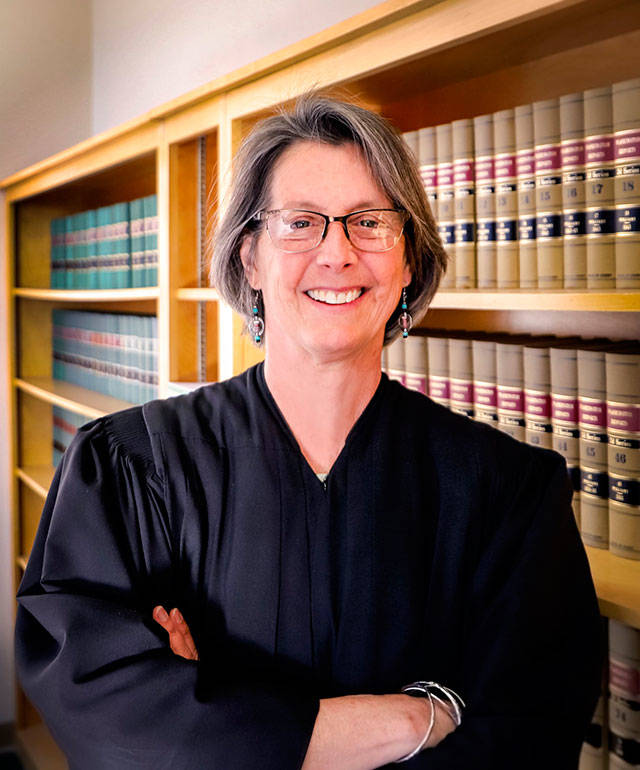After serving on the bench of the Pierce County Superior Court for 13 years, Judge Susan Serko, a longtime islander, has retired. Her last day was Aug. 31.
Tracing her career back to when she first decided to attend law school, Serko said her time in superior court was the highlight of her legal career — and where the action is.
“It’s fast-paced, it’s always something different, and it’s always something interesting,” she said. “That’s really where my heart was. Especially juvenile court.”
There, Serko said, she was primarily involved in the dependency process, work that begins following reports of neglect or abuse or if a parent or guardian is incarcerated.
“It’s a pretty amazing system where everyone is collegial and professional,” she said, noting the strength and character of her colleagues and their efforts to improve the lives of children. “The days just fly by. It’s a great place to be.”
Serko said she was especially proud of the innovative Best For Babies program that was started in the Pierce County Juvenile Court, designed to ensure care for substance-addicted infants and toddlers with the goal of getting families back on the right path. Parents, caregivers, judges and advocates work together to help children in such situations and move them out of the child welfare system.
“Part of it is to get treatment for the mother and father if necessary and to see to the health of the children, and then reunite [families] as quickly as possible,” she said. “Pierce County is on the cutting edge of juvenile court.”
Serko got her start in law school after sitting in on a class at the State University of New York, College of Cortland, and later received her bachelor’s degree in 1976. Fond of her childhood spent in the Pacific Northwest, she and her partner, Peter Serko, packed up a U-Haul and moved to Tacoma. She graduated from the University of Puget Sound School of Law in 1982.
“We never made it back East. It’s a pretty special place out here,” she said.
Serko first worked with a local firm and practiced in the areas of insurance defense, plaintiff’s personal injury, family law and discrimination, noting that she was one of a small minority of women at the time in the region who practiced law. In 2001, she accepted a position with the Office of Administrative Hearings in Seattle as an administrative law judge, working primarily with social services, conducting hearings on child support and public assistance.
Pierce County Superior Court is the second largest superior court in the State of Washington. Serko was appointed as Superior Court Judge for Department 14 in 2006 by former governor Christine Gregoire.
Along the way, Serko said, she has mentored a number of young lawyers and has the same advice for anyone looking to enter the practice.
“Start in a smaller legal community,” she said.
That’s how she was able to get to know the judges and find her bearings during her first years. It helped her to gain a reputation and advance her own career.
“If you’re responsible and you’re prepared and you work hard, you’re going to be well respected, and you’re going to get clients,” she added.
As she leaves the bench, Serko said, she has come to understand that compassion goes a long way.
“Ninety-nine percent of the criminals that I dealt with in superior court were just lost. They were substance abusers, they were making mistakes. They were not horrible people.”
But some cases, she said, were harder than others. In 2006 Serko arraigned 24-year-old Ulysses Handy, who was convicted of murdering three people during a robbery and later sentenced to life in prison. She said Handy had no remorse for his crimes.
“When this kid stood in front of me, the hair on the back of my neck stood up,” she said. “This young man was evil, and why he got that way and what happened God knows, but I can just remember the hair on the back of my neck standing up.”
In another case, Serko said she presided over the custody hearing of a child whose mother was found guilty of killing an ex-boyfriend.
“I got off the bench after I made my decision and cried. You have those days as a judge.”
But Serko said that her last day ended with some sadness about leaving and happiness about the work of the day — she led adoption hearings for three children to join permanent, loving families.
“It was an emotional day as a judge already. I joined everyone with the joyful emotions of that day,” she said. “[It was] a happy, joyful time.”



